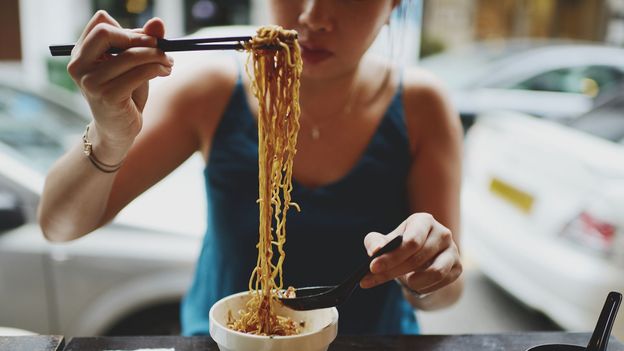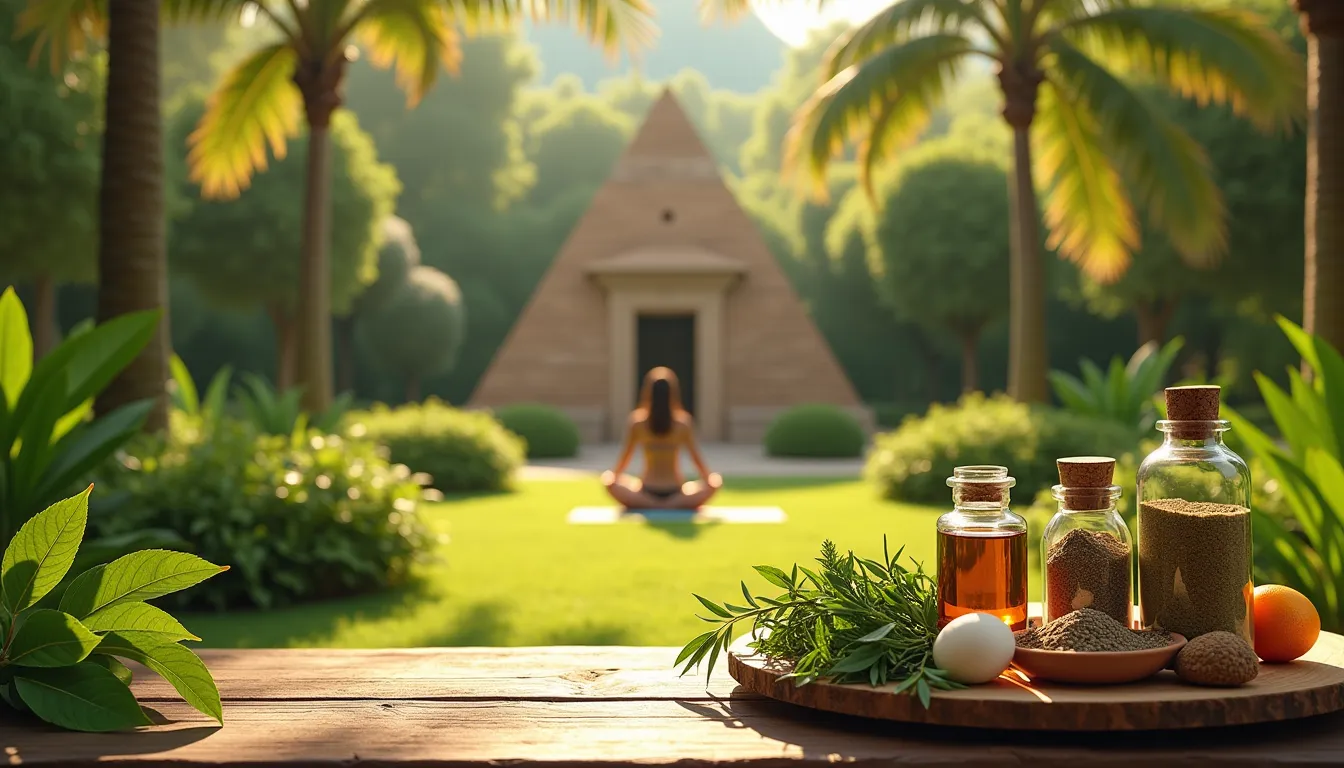 Getty Images
Getty ImagesWhen it comes to longevity, few places in the world have seen such a drastic jump in life expectancy as the island city-state in Southeast Asia.
A child born in the country in 1960 was only likely to live (at the time) to 65, but a child born in Singapore today can expect to live to more than 86 according to estimates. In addition, the number of centenarians in Singapore doubled over the 10-year period from 2010-2020.
This huge leap in longevity has largely been driven by intentional government policy and investment. The distinction even was enough to have the country named the world’s sixth “Blue Zone” in August 2023. Though recently questioned for their accuracy by demographers, the Blue Zones were discovered and coined by National Geographic journalist Dan Buettner, who claimed to identify regions where people lived longer, healthier lives, in large part due to a combination of culture, lifestyle, diet and community.
Singapore was the first new region to be added to the Blue Zones in decades (dubbed a “Blue Zone 2.0” by Buettner) and stands apart from the other Blue Zones in part because the longevity of its people comes more from forward-thinking policies than long-established cultural traditions in other Blue Zone communities like Ikaria, Greece or Nicoya, Costa Rica.
But it’s not just the quantity of life, but also the quality of life that residents here appreciate. We spoke to a few of them to understand which policies and practices make their lives healthier, and happier – and what they recommend to others seeking to live here in search of a longer life.
A healthy transition
Residents in Singapore have witnessed the government’s gradual policy changes that affect their health and wellness.
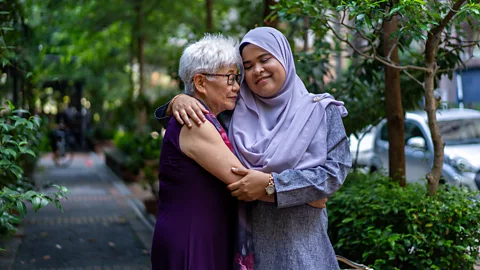 Getty Images
Getty Images“Having grown up here, I’ve seen firsthand the transformation in community health consciousness,” said resident Firdaus Syazwani, who runs the financial advice blog Dollar Bureau. “The heavy taxation on cigarettes and alcohol coupled with stringent public smoking bans not only improves individual health but also enhances public spaces, making them more welcoming and cleaner. No more second-hand smoke!”
He was surprised to learn about the Blue Zone designation, if only because of the high amount of sugar, salt and coconut milk used in local dishes. But even that’s changing (if slowly) because of policy. “Given our local cuisine’s penchant for richer ingredients, the Health Promotion Board has initiatives to encourage healthier dietary choices among residents,” he explained. “Measures like mandatory nutritional labelling and the reduction of sugar content in beverages have made a noticeable difference in public health awareness and choices. Although it’s yet to be known exactly how effective this initiative is, I personally tend to steer away from sugary drinks when I see these labels.”
Singapore’s healthcare system has also received global accolades for both its quality of care and its ability to keep costs contained. The 2023 Legatum Prosperity Index ranked the country the best in the world as it relates to citizens’ health and their ability to access healthcare. The country offers universal healthcare coverage, but also has a mix of private services and savings funds to help cover out-of-pocket expenses.
A focus on green spaces
But it’s not just healthcare that plays a role in residents living longer lives. Other policies like robust public transportation encourage walking and daily exercise, while a prioritisation on keeping the country clean and beautiful also gives residents a sense of security and calm.
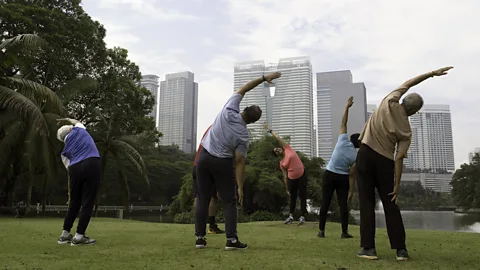 Getty Images
Getty Images“Government initiatives that prioritise the seamless integration of parks, gardens and nature reserves into the cityscape have earned [Singapore] the reputation of being a ‘garden city’,” said Charu Kokate, senior partner at Safdie Architects, who also was the project lead behind the firm’s iconic buildings like Sky Habitat Residential Towers and Jewel Changi Airport. “After living in Singapore for more than 15 years, I am constantly impressed by how the Urban Redevelopment Authority has meticulously planned the city. Their focus on sustainability, efficient land use and incorporating green spaces into urban life is remarkable. While Singapore’s laws can be strict, they have resulted in a clean and well-maintained environment.”
One of her favourite places to visit is the Singapore Botanic Gardens. Located in the city centre, it’s the only tropical garden to be recognised as a Unesco World Heritage site. “Its remarkable orchid collection and focus on plant research and conservation make it a haven for nature lovers, families and tourists seeking peace and beauty,” she said.
The public parks also serve as a hub for community, a factor that all longevity researchers agree is essential to living a long, healthy life. “From young adults to seniors, you’ll find a wide demographic engaged in regular exercise, facilitated by extensive public parks, fitness corners and gym classes that are easily accessible throughout the city,” said Syazwani.
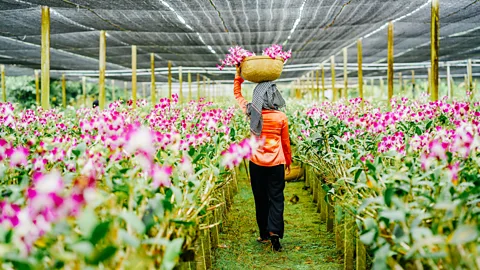 Getty Images
Getty ImagesFor those considering a move here, embracing that community spirit and lifestyle is key. He recommends East Coast Park, a stretch of beach that has plenty of picnic options and room to walk while taking in the sea breeze.
What to know
Though the quality of life can be high in Singapore, the price of living here is also commensurate. The country is often ranked as one of the world’s most expensive places to live, with Mercer ranking it second after Hong Kong.
Though the population is diverse, with people emigrating here from across the world, the government prioritises a strong sense of social cohesion, enforced through laws and enforcement. The state has strict laws (and penalties) against littering, smoking in public, drugs and even jaywalking, but many residents find the regulations help keep the country a safer and more beautiful place to live.
“The government’s policies are carefully aligned with the needs of the population, focusing on improving the overall quality of life, supporting economic stability and maintaining social harmony,” said Kokate. “Singapore’s political stability plays a key role in fostering an environment that encourages business investment, economic growth and social cohesion.”
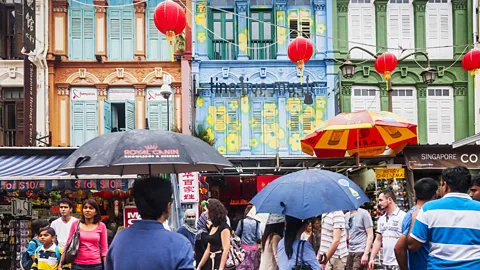 Getty Images
Getty Images“The city has something for everyone, regardless of age,” said Kokate. “The multicultural society embraces a wide range of traditions, creating a rich and vibrant cultural experience that enhances the stay for both visitors and expats.”
Living In is a series from BBC Travel that discovers what it’s like to reside in some of the world’s top destinations.
This story was first published in October and was one of our most-read Travel stories of the year.

